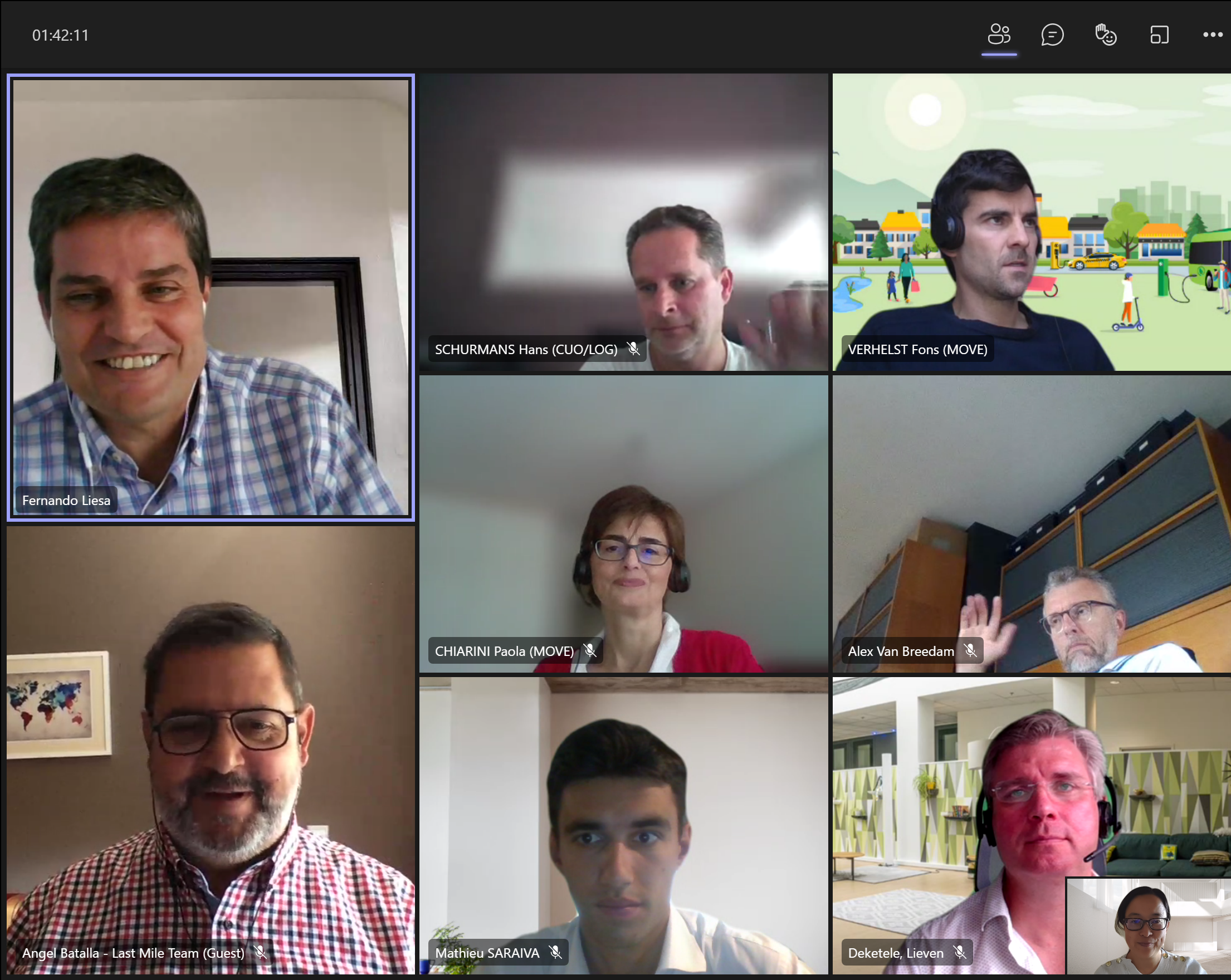ALICE Answers EC’s Public Consultation on New Urban Mobility Framework focused on Innovation Activities
Wednesday, September 22nd, 2021

ALICE members in the Urban Logistics Thematic Group and policy officers from DG MOVE, European Commission have had extensive exchange on 10th September 2021 framing ALICE answers to the EC’s public consultation on New Urban Mobility Initiative.
ALICE, together with POLIS, already supported the European Commission to organise a consultation workshop on 21st June 2021 and has a permanent exchange with POLIS and the European Commission. A summary of the workshop results can be found here.
ALICE calls for a more integrated and dynamic approach in which urban logistics is fully considered as part of the mobility system to connect various services together to make and efficient use of vehicles and space supporting urban freight and logistics to be zero emissions and contribute to liveable cities. Specifically, ALICE calls for:
- openness of cities to support companies to test innovative solutions that are environmental-friendly and financial-viable. The European Commission may support and facilitate the identification and exchange of best practices in multi-stakeholder frameworks beyond CIVITAS, focussed mainly on cities, to engage with other stakeholders and Companies networks (e.g. ALICE).
- European support to cities to define strategies and methods to get a better understanding of freight flows in cities (including e-commerce), to build stakeholder maps (i.e. have a clear idea of stakeholders interest) as well as implications of city topologies as the basis to define Smart Urban Logistics Plans and Implementation Strategies.
- additional and focused R&D to support innovation, development and uptake of flexible vehicle designs, such as use standard modularisation (including load units) for the e-commerce last mile deliveries, zero emission trucks and strongly support new business models process innovation to make better use of assets, infrastructure and urban spaces (e.g. Physical Internet).
- projects working on engaging retailers to provide appropriate information to enable informed decisions by consumers: sustainability and convenience, and identifying mechanisms to drive sustainable behaviour.
- a harmonised framework for vehicle access regulation at EU-level, e.g. harmonised access management for cities with similar sizes or at least a portfolio of definition of zonal types and vehicles restrictions with more harmonized processes (currently rank from per city permits and different type of labels to camera recognition). How to overcome singularity of cities and countries?, How to arrange it with a low threshold for cities?
- full engagement of freight transport and logistics companies including shippers and retail in developing and reviewing Sustainable Urban Logistics Plan and any transport and mobility measures; European Commission may support the review of SULP guidelines from the perspective of the companies and raising consensus from company groups.
- advancing in overarching models for data sharing between cities and companies (data protocols and standards, governance, use cases, etc.) to support efficient processes, better allocation and management of resources (e.g. dynamic planning, access regulations, curb side management, better understanding of urban freight) building on ongoing efforts (e.g. Data Strategy, Data Spaces and Digital Transport and Logistics Forum)
ALICE also supports to use effective regulations and policy instruments to encourage the adoption of low- or zero- emission vehicles for freight by creating a common level playing field, with the objective of achieving zero emission logistics emissions in city centres by 2030 (or earlier).
The public consultation is open until 23 September 2021. More information about the Public Consultation and fill in the online questionnaire, please click here.
For more information please kindly contact Yanying Li, the head of Programs and Knowledge Management, ALICE.
Back to overview
